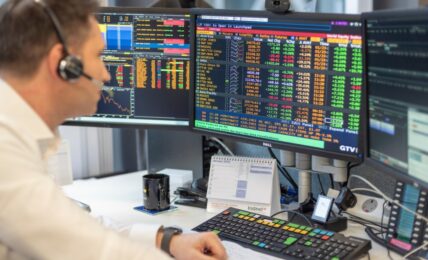Mercedes-Benz announced today the opening of a new battery recycling plant in Kuppenheim, southern Germany, creating “a genuine circular economy,” according to the company, with a 96% recovery rate, and the ability to recover key materials such as lithium, nickel and cobalt in a way which is suitable for use in new batteries for future electric vehicles.
Mercedes-Benz said that it has invested “tens of millions of euros” to construct the new plant, and that the plant is receiving funding from the German Federal Ministry for Economic Affairs and Climate Action as part of a scientific research project with three German universities that is looking at the entire process chain for recycling, including logistics and reintegration concepts.
The new plant has an annual capacity of 2,500 tonnes, with the recovered materials feeding into the production of more than 50,000 battery modules.
Marking the first battery recycling plant in Europe with an integrated mechanical-hydrometallurgical process, the facility covers all key recycling steps from shredding battery modules to drying and processing active battery materials, with the mechanical process sorting and separating plastics, copper, aluminium, and iron in a complex, multi-stage process, and the downstream hydrometallurgical process dedicated to the “black mass,” or the active materials that make up the electrodes of the battery cells.
Battery metals cobalt, nickel and lithium are extracted individually in a multi-stage mechanical process at the new plant, enabling the materials to remain of battery quality for use in new battery cells.
Jörg Burzer, Member of the Board of Management of Mercedes-Benz Group AG, responsible for Production, Quality & Supply Chain Management, said:
“The innovative technology enables us to recover valuable raw materials from the battery with the highest possible degree of purity. This turns today’s batteries into tomorrow’s sustainable mine for raw materials. The new battery recycling plant strengthens the role of the Mercedes-Benz production network with vehicle and drivetrain plants in Europe.”
Mercedes-Benz’s Ambition 2039 strategy includes a goal to make its fleet of new passenger cars net carbon neutral over the entire vehicle lifecycle by 2039. As part of its strategy, Mercedes-Benz has set a goal to increase the share of recycled materials in its new vehicle fleet to an average of 40%.
While current battery recycling facilities currently typically utilize pyrometallurgy, according to Mercedes-Benz, the new facility’s hydrometallurgical process is less-intensive in terms of energy consumption and material waste, with low process temperatures of up to 80 degrees Celsius consuming less energy. The plant operates in a net carbon-neutral manner, is supplied with 100% green electricity, and features a roof area equipped with a photovoltaic system with a peak output of more than 350 kW.
Ola Källenius, Chairman of the Board of Management of Mercedes-Benz Group AG, said:
“Mercedes-Benz has set itself the goal of building the most desirable cars in a sustainable way. As a pioneer in automotive engineering, Europe’s first integrated mechanical-hydrometallurgical battery recycling factory marks a key milestone towards enhancing raw-materials sustainability. Together with our partners from industry and science, we are sending a strong signal of innovative strength for sustainable electric mobility and value creation in Germany and Europe.”


